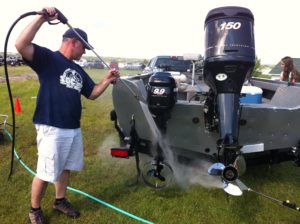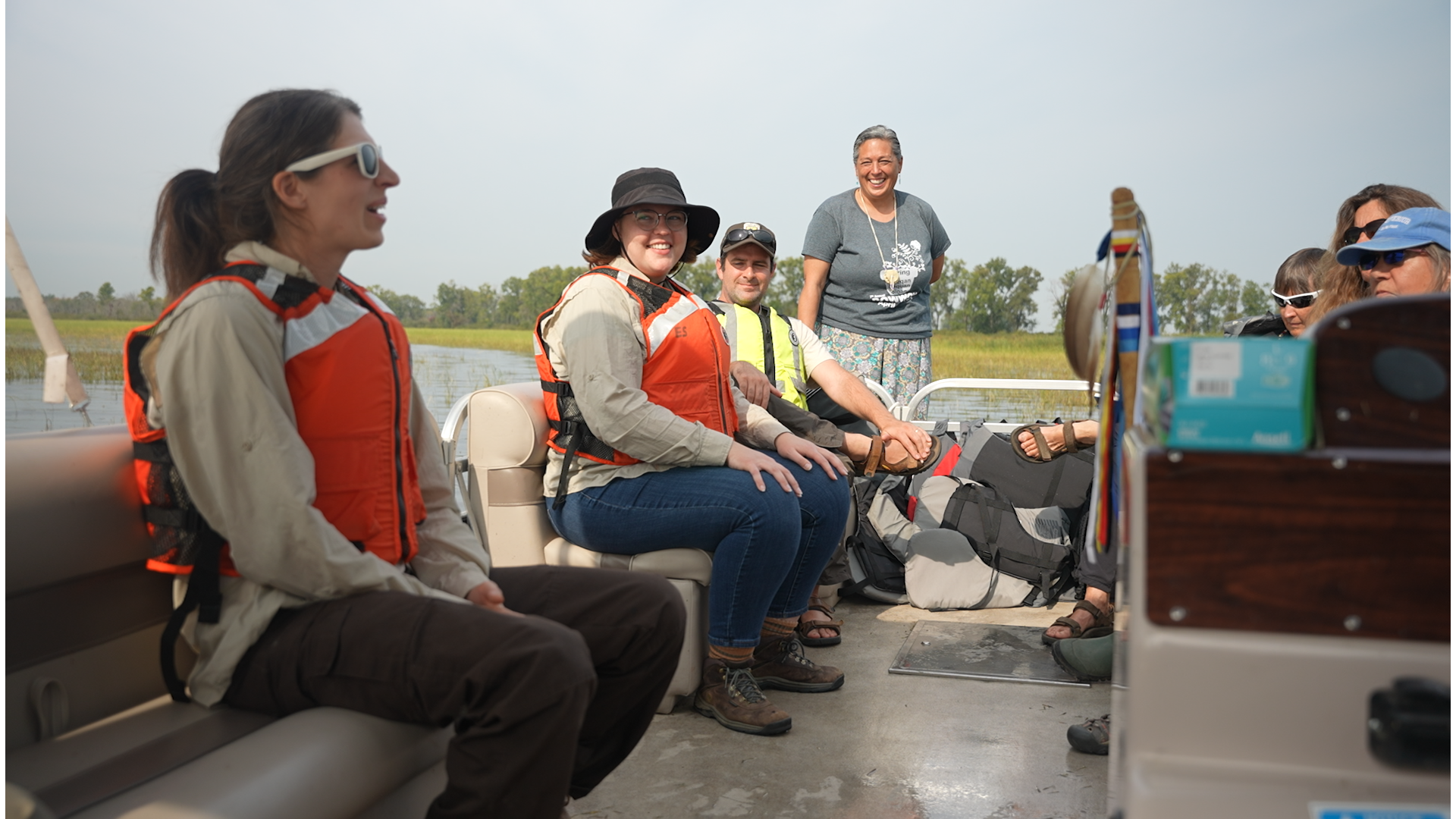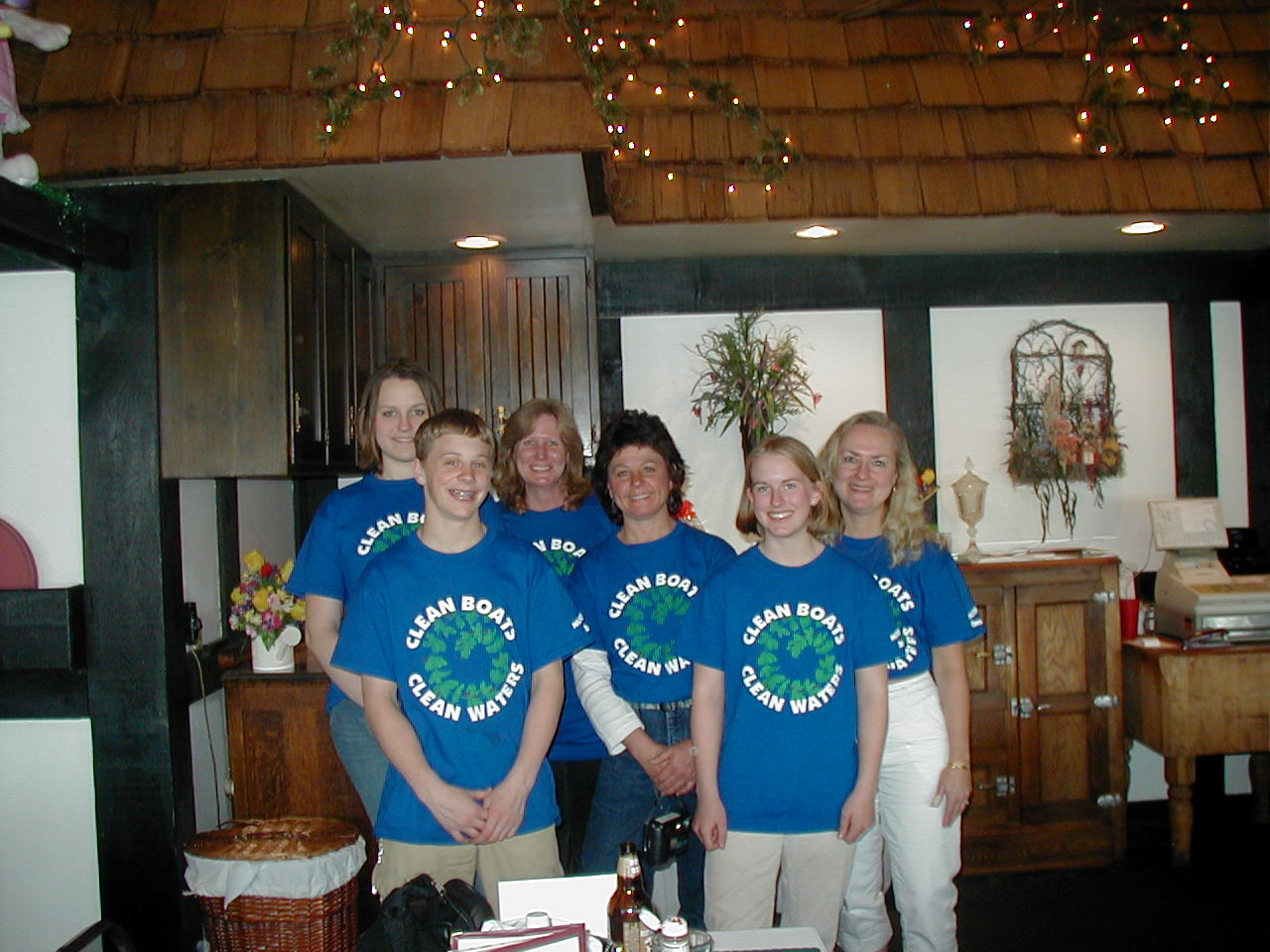
With boating season just around the corner, Wisconsin Sea Grant and the National Sea Grant Law Center have provided timely guidance to those operating or planning to operate a watercraft inspection and decontamination (WID) program in Wisconsin.
Their legal guidance is available in a concise document outlining the issues and various types of liability faced by federally operated WID stations, state/local stations, and stations run by nonprofits. The document is available.
While hand removal of aquatic plants and draining water is generally effective at preventing the spread of invasive species, decontamination can further reduce the risk of transporting small invertebrates like zebra mussels, snails and spiny water fleas.
Watercraft decontamination is a process that uses hot water to kill and remove invasive species from boats, and it can be used in addition to the Stop Aquatic Hitchhikers guidance of “Clean Drain Dry” to reduce the probability of unintentionally transporting invasive species.
Tim Campbell, Wisconsin Sea Grant’s aquatic invasive species outreach specialist, said the new document will help remove roadblocks for those planning to run a decontamination station. A better understanding of legal risks will make people feel more comfortable moving forward, Campbell said.
“When safety procedures are followed, boat decontamination is a pretty low-risk activity,” said Campbell, “but there’s always the chance that something unintended could happen. In those rare instances, we want people who are running these programs to be able to appropriately manage anything that might occur,” such as property damage or injury to a person.
Currently, there are fewer than 10 high-pressure, hot-water decontamination stations for the public to use throughout Wisconsin. Three are run by the Wisconsin Department of Natural Resources.
In Wisconsin, there is no legal requirement to decontaminate one’s boat or other watercraft, but doing so helps safeguard the health of our waters and ecosystems. Self-reported compliance levels are high at over 90 percent, but that still leaves 10 percent of boaters engaging in risky behavior. In Wisconsin, there are more than 600,000 registered boats, so that 10 percent represents many potential boating trips.
The National Sea Grant Law Center, based at the University of Mississippi, has a track record of WID legal research and has created model laws for the western United States. Now, their work with Wisconsin Sea Grant has produced information tailored to the needs of the Badger State.
Technical questions may be directed to Tim Campbell at tim@aqua.wisc.edu or 608-262-0905.





